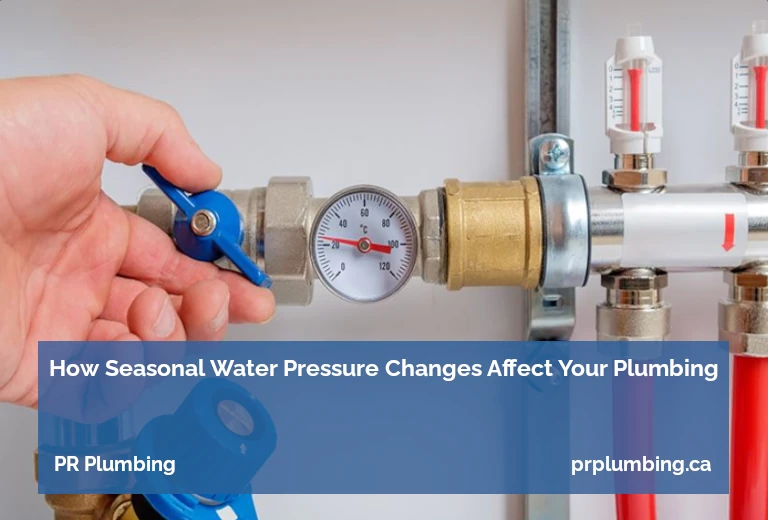When you think of changing seasons in Ontario, you might picture fluctuating temperatures, snowstorms, and summer heat waves. But, there’s another seasonal shift you probably don’t notice.The weather can cause water pressure changes. These fluctuations can quietly put stress on your plumbing, leading to leaks, bursts, or damaged appliances if left unlocked.
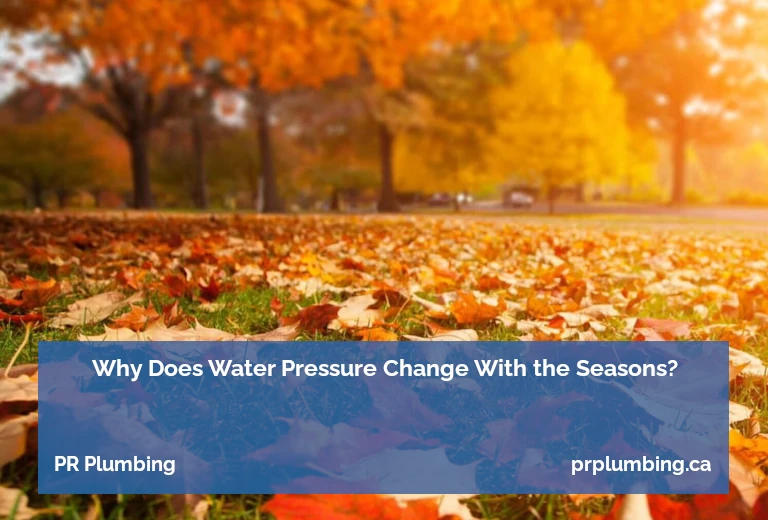
Why Does Water Pressure Change With the Seasons?
The pressure in your water supply fluctuates throughout the year. Municipal water systems modify flow rates in response to environmental conditions and demand:
- Winter: Water mains may become constrained as a result of frost that can seep deeply into the ground. In order to make up for any potential slowdowns brought on by ice and cold temperatures, towns may simultaneously apply more pressure.
- Summer: Pools, sprinklers, and outdoor water use all increase. To accommodate this demand, municipal systems force more water through at higher pressures.
- Spring and Fall: Sudden fluctuations in temperature and precipitation can result in shifting soil conditions, which can occasionally affect subterranean pipelines and create abrupt pressure shifts.
These changes might not seem like much, but even a swing of 10 to 15 psi can cause stress spots in your fixtures and pipelines.
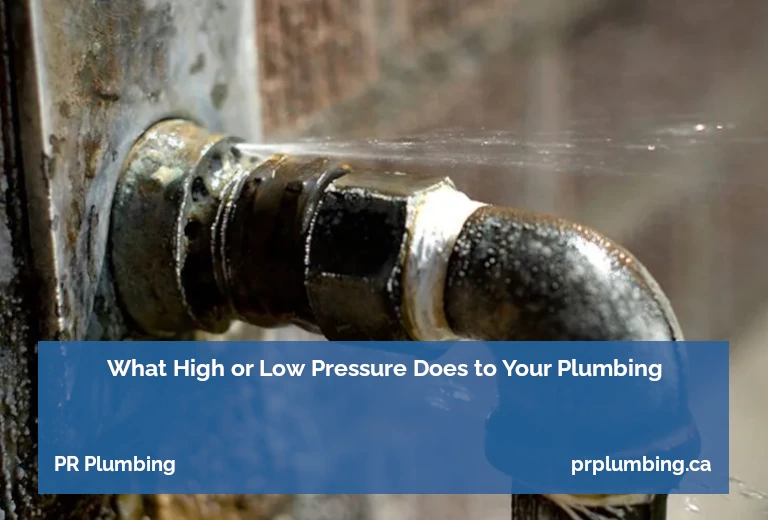
What High or Low Pressure Does to Your Plumbing
The safe operating pressure range for plumbing systems is normally between 40 and 60 psi. You notice poor flow in faucets or showers when the pressure drops too low. But the harm isn’t often immediately apparent when it surges too high, usually above 80 psi.
- Pipes and fittings: Joints, valves, and seals deteriorate more quickly at high pressure. It may eventually result in leaks in crawl areas or behind walls.
- Fixtures and Faucets: Constant pressure spikes can cause ceramic discs, cartridges, and rubber washers inside faucets to fail too soon.
- Water heaters: The temperature and pressure relief valve have to discharge water more often when the pressure is too high. In extreme situations, the tank liner may sustain damage.
- Appliances: Dishwashers, washing machines, and ice makers have internal hoses and valves that are especially vulnerable to bursts when pressure isn’t regulated.
This results in unexpected failures, sudden leaks, and expensive repairs that could have been prevented.
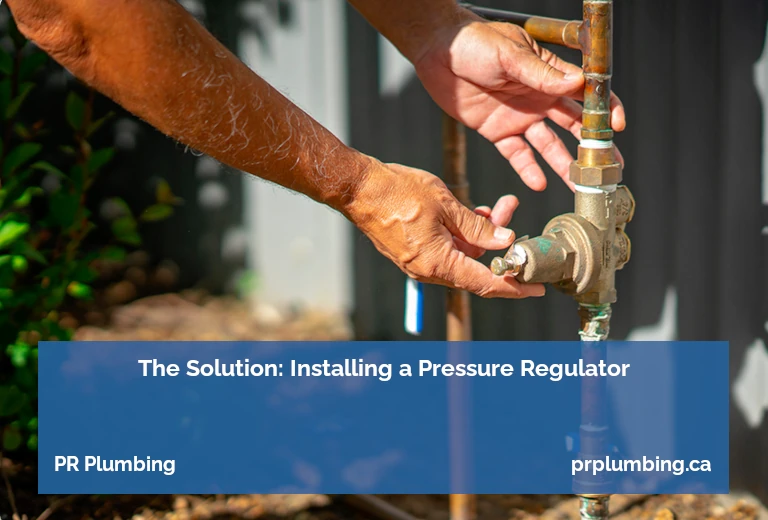
The Solution Installing a Pressure Regulator
The best defense against seasonal water pressure changes is a pressure reducing valve. This pressure regulator is a device you install where your water line enters the home and it automatically keeps the pressure at a safe level for you.
- It protects your plumbing system by maintaining consistent pressure to avoid surges.
- Dishwashers, washing machines and water heaters will last longer under consistent pressure.
- Fewer stress points mean fewer hidden leaks, and that means fewer plumbing emergencies.
- Lower pressure means less water waste and that decreases the strain on your hot water systems.
If your home is older than 10 years, it’s time to have it inspected.
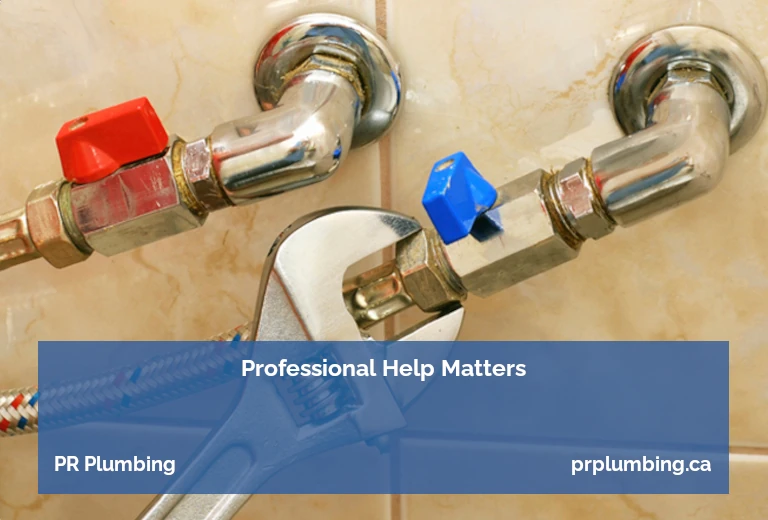
Professional Help Matters
Water pressure not only affects your comfort, but also the long-term health of your plumbing system. Our licensed plumbers have the tools to:
- Measure your water pressure accurately to detect any changes
- Install or replace a pressure regulator that suits your home
- Inspect your system for the early warning signs before leaks happen
- Recommend the kind of maintenance you need
By addressing seasonal water pressure changes now, you are surviving yourself from the unexpected cost and inconvenience of burst pipes or appliance breakdowns.
Don’t let the seasonal changes catch you off guard. Call PR Plumbing today on (905) 429-9622 to keep your home protected all year long.
